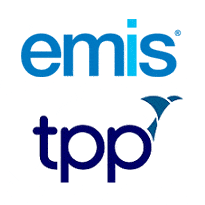Emis-TPP data sharing called off
- 26 July 2013

An agreement to work on direct sharing of information between TPP and Emis users has collapsed.
EHI reported in March that the GP IT system suppliers were working on a “groundbreaking” data-sharing agreement.
The companies said they were looking for sites to pilot the technology, which would allow clinicians using one system to view patient records from the other system.
However, talks have broken down.
This follows an announcement from Healthcare Gateway on Wednesday that it has failed to agree terms with TPP to allow SystmOne data to be shared via the Medical Interoperability Gateway.
A TPP spokesperson said that Emis informed the company on 16 July that it was withdrawing from the point-to-point data sharing work as it, “preferred all integration to be processed through the MIG”.
TPP claims that Emis, part owner of Healthcare Gateway, generates substantial profit from the MIG, whereas point-to-point interoperability would have been free.
However, Emis managing director Neil Laycock said interoperability is about sharing data across the healthcare estate, not simply a matter of GP systems sharing data with each other.
“EMIS has been involved in talks with TPP about point-to-point data-sharing between the two suppliers’ systems and we have not walked away from these,” he said.
“We have simply concluded, when looking at the best way to technically deliver this interoperability, that it made more sense to use an existing platform – the MIG – than to create a new one.
Laycock said Healthcare Gateway was created as a separate entity from EMIS three years ago and that it is not yet in profit.
“This is clear proof of Healthcare Gateway’s commitment to delivering interoperability for the wider benefit of the NHS,” he added.
Dr Glyn Hayes, president of the BCS Primary Health Care Specialist Group, said interoperability is key to the development of joined-up patient care.
“It is a fundamental part of the NHS plans for the future,” he said.
“Patients regularly complain about the confused way they are dealt with by the various healthcare units they attend. Interoperability is the way to improve this.
“Reputable suppliers want interoperability to allow their systems to assist in better patient care."




